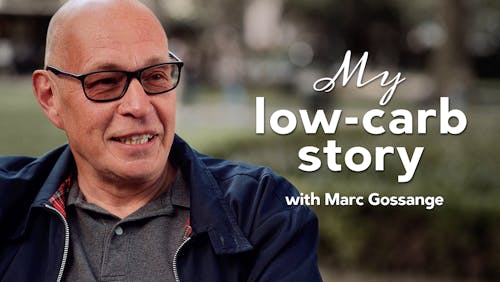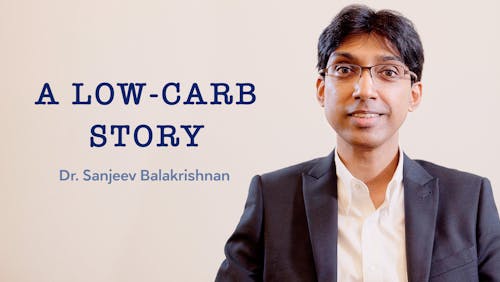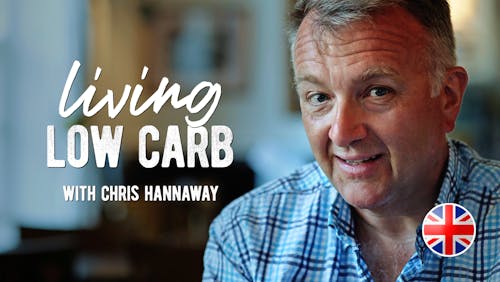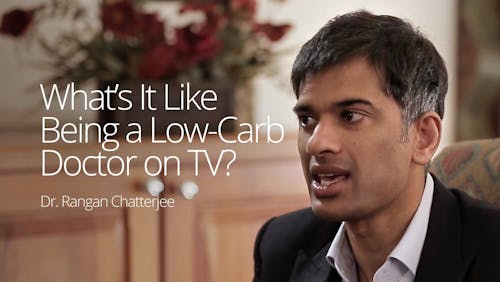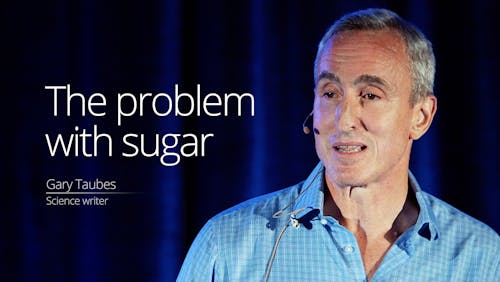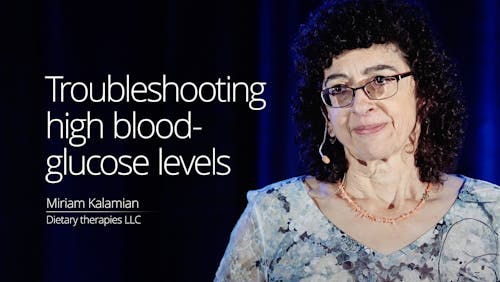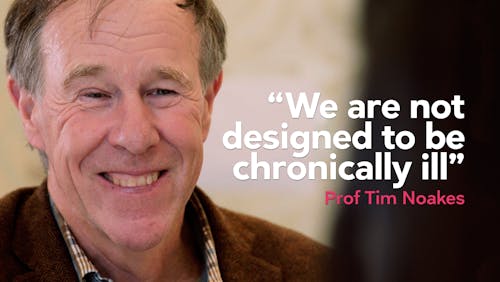Low-carb beats high-carb for people with type 1 diabetes
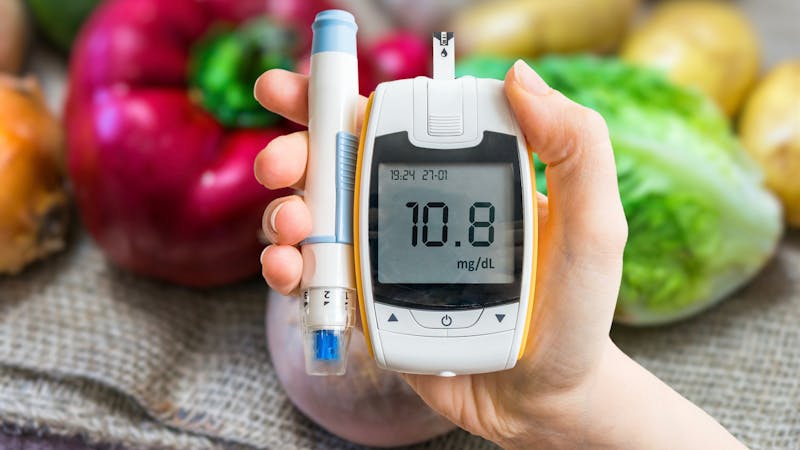
As anyone with type 1 diabetes can tell you, there are many factors that affect blood sugar that don’t have anything to do with food: stress, illness or injury, insulin pump malfunctions, to mention just a few.
Although many of these are unavoidable, dietary choices are fortunately entirely within everyone’s control. Furthermore, research continues to demonstrate that cutting back on carbs results in more stable blood sugar and improved metabolic health in people with type 1 diabetes, including a new study from Danish researchers:
In this study, type 1 diabetic adults were randomly assigned to consume either a high-carb diet (250 grams per day) or a low-carb diet (less than 100 grams per day) for 12 weeks. After a washout period, they followed the other diet for a second 12-week period.
A dietitian counseled the participants about each diet and created meal plans that met the carbohydrate criteria for each group. However, other than providing examples of fat and protein sources, no guidance was given regarding the types or amounts of fat or protein to consume.
The primary outcome was the amount of time people’s blood sugar remained between 70 to 180 mg/dL (3.9 to 10 mmol/L) – the target blood sugar range according to the American Diabetes Association – based on continuous blood glucose monitoring (CGM) data.
Although there were no major differences in this primary endpoint during the two diet interventions, when eating low carb, the participants:
- spent significantly less time at a blood sugar level below 70 mg/dL (3.9 mmol/L) and had less variability in blood sugar than when eating high carb
- needed roughly half as much mealtime insulin as when they consumed the high-carb diet
- lost an average of 2 kg (4.4 lbs) by the end of the study. On the other hand, they gained 2.7 kg (5.9 lbs), on average, while eating high carb – even though each diet plan was designed to maintain weight
- achieved a slight decrease in blood pressure. By contrast, blood pressure increased during the high-carb phase
- experienced a slight increase in HDL cholesterol
Of the 14 people who took part in the study, four dropped out, including one person who had eaten the low-carb diet for 12 weeks and “could not endure the thought of eating 250 grams of carbohydrate per day” and another who wanted to avoid the post-breakfast blood sugar spikes he experienced on the high-carb diet.
Although this study demonstrates that a diet moderately low in carbs is better than a high-carb one, potential reasons for the similar time spent within the target blood sugar range include:
- The type of carbohydrates consumed weren’t recorded. Rather than getting most of their carbs from slowly digested non-starchy vegetables, legumes, nuts and seeds, participants may have been eating grains, high-glycemic fruit, and other foods that have a much bigger impact on blood sugar.
- The types and amounts of protein and fat consumed weren’t recorded. Protein also raises blood sugar – although more slowly and to a lesser extent than carbs – and requires an extended insulin bolus in people with type 1 diabetes, especially with low-carbohydrate diets. Although participants may have been advised of this, it wasn’t discussed; only carbohydrate counting was mentioned for purposes of calculating insulin doses.
- The target range for blood sugar was very broad. Although individual data wasn’t reported, it may have varied from person to person based on dietary compliance. Essentially, blood glucose levels of 85 mg/dL (4.7 mmol/L) and 179 mg/dL (9.9 mmol/L) were considered equal in terms of meeting the primary outcome of time spent within range.
- Carbs were only moderately reduced. Based on a previous observational yet impressive study of a very-low-carb diet in people with type 1 diabetes, it’s likely that if carbs had been restricted further, the time spent in a narrower blood glucose range such as 80 to 130 mg/dL (4.4 to 7.2 mmol/L) at all times would have differed greatly between the two groups.
New study: Exceptional blood sugar control for type 1 diabetics on low carb
As we await the results from upcoming trials exploring the effects of very-low-carb diets for type 1 diabetes, it’s encouraging to see that even moderate carb restriction can lead to more stable blood sugar levels and other health benefits.
Earlier
New study: Low carb great for people with type 1 diabetes
Doctor transforms her health with low carb and pays it forward


Type 1 diabetes – how to control your blood sugar with fewer carbs
Guide The more carbohydrates you eat the greater doses of insulin are needed. Studies and experience have shown that low-carb diets can be beneficial for people with type 1 diabetes.
